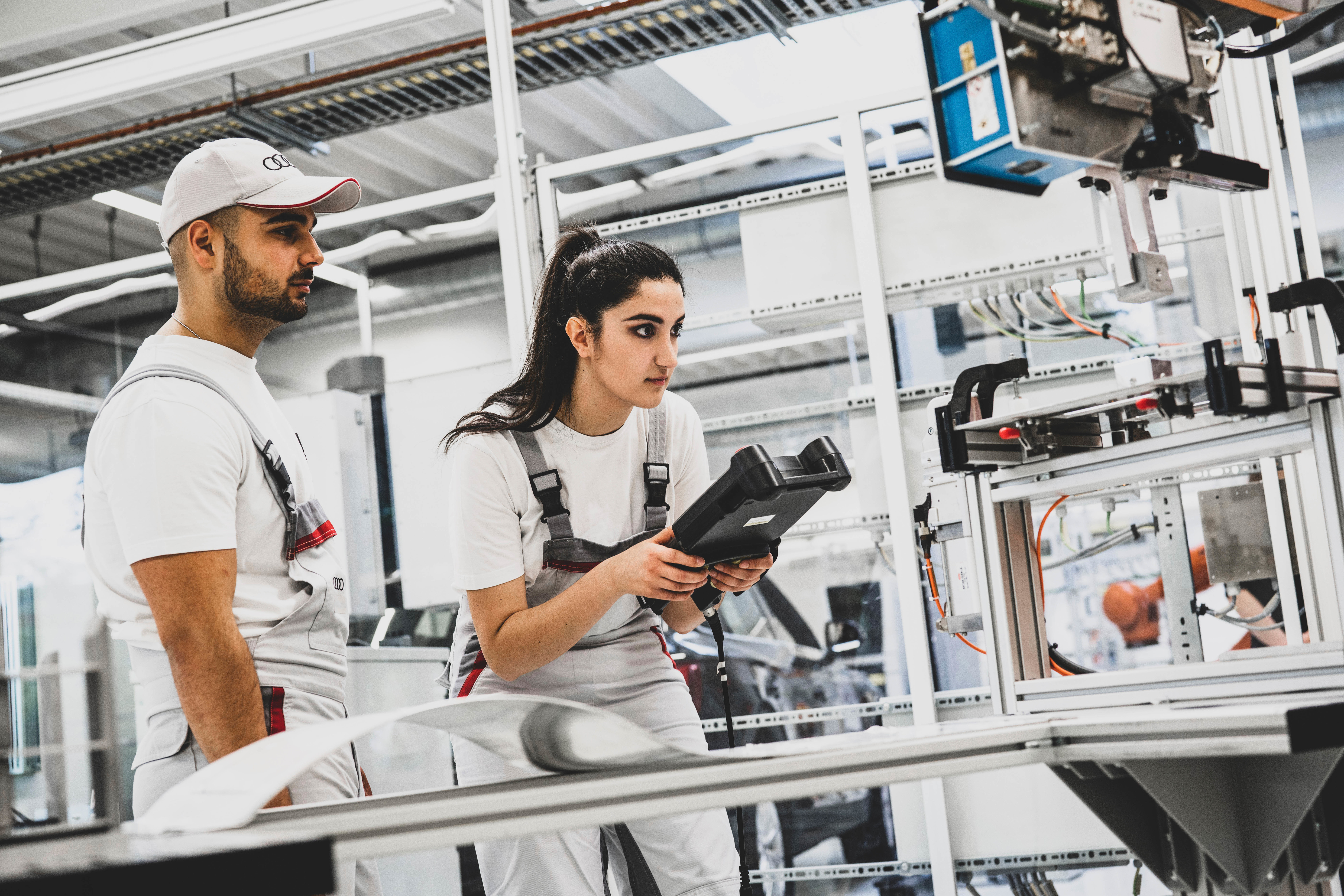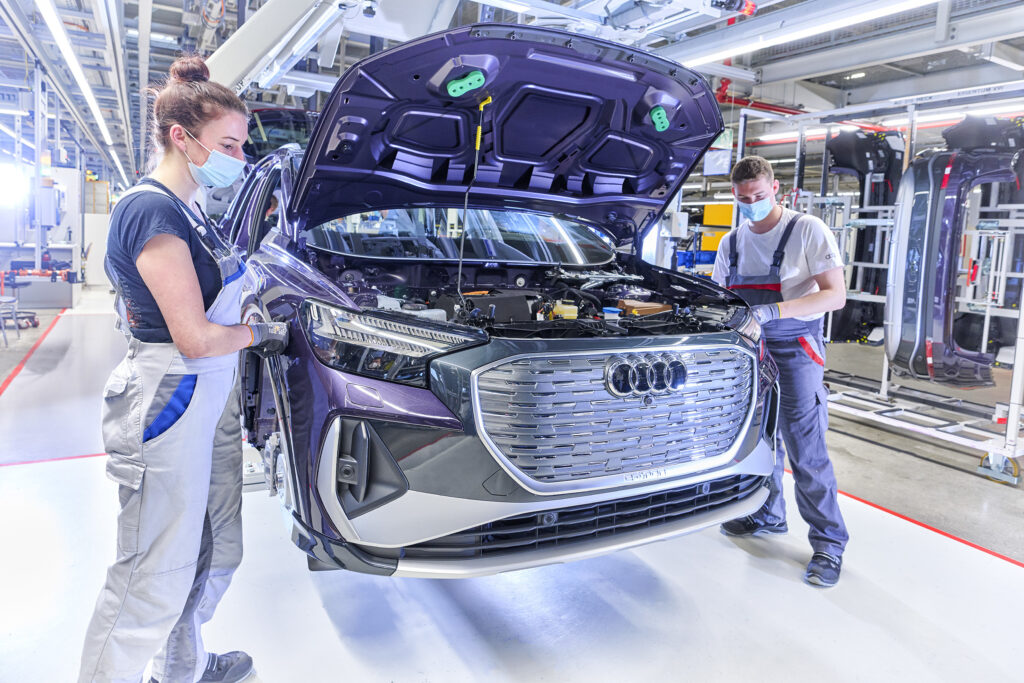Jan Michel, chief transition architect of technical development at Audi, discusses objectives, methods and a new understanding of leadership as the OEM undergoes its transition
Audi is currently undergoing a profound transformation – involving the phasing out of combustion technology, the introduction of new digital business models and a new view of mobility shaped by the company’s social responsibility. What does this mean for the technical development department?
Our work is becoming increasingly complex. In the past few decades, our business model was relatively simple – we sold vehicles. Now we have to think on a whole new level, namely in terms of the mobility system in its entirety. We need to think about charging experiences and capabilities, digital ecosystems and the seamless integration of software into our vehicles.
What are the implications?
On the one hand, we need new connectivity technologies that make new business models possible. On the other hand, we have to manage the growing complexity in development and production. In the past, we worked toward specific points in time – the start of production, the market launch, the model update. Now, our development activities need to be continuous. Our processes, our qualifications and – very importantly – our mindsets need to be aligned with this.
In other words, Audi is moving away from the traditional way of thinking in cycles toward continuous development. What do you consider to be the core areas of focus in this respect?
We can’t allow ourselves to focus on individual areas – we have to think holistically. The decision to only launch electrically powered vehicles from 2026 onward gives us the ability to plan ahead with certainty. Until then, we will continue to develop the best internal combustion engines while at the same time creating the necessary structures for the future so that we can fully focus on battery technologies and Level 4 autonomous driving from 2026 on. This clarity, not only in project management and financial planning but above all in the alignment of our competencies, gives us the ability to work toward the future early on and to clearly point out the opportunities. When it comes to specifics, our activities are, of course, closely aligned with our overall corporate strategy, whether it’s our future electric vehicles, digital ecosystems or our activities in the fields of environmental, economic and social sustainability.
What concrete steps are you taking to transform technical development?
We are striking directly at the root – namely our core product development process – and changing our methodology. The focus is on systems engineering, which involves completely new processes and work methods, moving away from functional silos that have been the industry standard, especially in the automotive sector, over the past few decades.
What exactly does this mean for the structures and mindset in technical development?
We no longer think sequentially from procurement to development to production to sales. We have to continue working on the software even after the car is on the market, make advancements in the sensor technology and ensure that the vehicle can be updated, especially when it comes to the interior. These tasks are too complex to continue working in functional silos. That’s why we are linking up within a matrix organization and collaborating across all functional areas. In addition, we’ll be working with new technologies and technological advances, whether it’s the solid-state battery or new Level 4 autonomous driving features. In other words, we’re moving into fields of technology that are far removed from what we’ve done before.
With new processes and technologies come major changes for the workforce as well. What measures are you taking to upskill employees for new tasks and lines of work?
First and foremost, this requires effective and interactive communication. We communicate quite extensively with all our employees, using a variety of new formats to get them on board and to solidify the change from within. We need to make it clear which skills will be needed for which tasks and lines of work. The fact that we no longer operate exclusively in the field of mechanical engineering, but very much in the digital world – from big data to cybersecurity – goes without saying.
Not all of these skills are likely to already be found within the company. How are you preparing for the increasingly digital future?
To this end, we are currently launching a large number of training measures, for example in the field of autonomous driving. In addition, we are working with universities to offer employees the opportunity to complete a kind of ‘mini-master’s degree’ over a period of six months. In partnership with THI (the Ingolstadt University of Applied Sciences), we are training our employees in subjects such as e-mobility and high-voltage batteries. This allows them to acquire the needed skills and network with a variety of external experts. Generally speaking, we need to offer incentives without inciting fear.
What are you doing to ensure that employees have a sense of security and a positive outlook in these times of change?
We have to make the measures so attractive that our employees see an opportunity in them for them personally. This also means that we have to open up a bit as a company in terms of our work culture. That’s why we are working on our attitude, our identity, the way we collaborate and our leadership. We have a clear vision for technical development. What makes me feel very optimistic is that, as far as I can tell, many employees in technical development are highly motivated and want to work together to achieve new things.
What makes you so optimistic? Can you give us an example?
We recently held an event on cultural initiatives in technical development that was attended by more than 2,000 employees. It’s clear that our workforce has tremendous potential and passion for what we are doing. To fully leverage both, we need not only to make rational arguments but also to show a great deal of empathy.
What do you mean by that specifically?
The leadership team has adopted a set of values that we exemplify and live out on a day-to-day basis. Our goal was for our people to understand our values without us having to preach them over and over again – simply because they experience them during our daily interactions with each other. Candor, for example, plays a major role in this regard. We discuss issues openly and honestly, even unpleasant ones, and resolve them together. We want to take action collectively, so we need team spirit and less internal competition. And we want to demonstrate a willingness to learn. We want to start with ourselves when it comes to fostering change, without waiting for direction from others. If we can effectively convey values like these every day, we will have a strong team behind us – and an extremely hungry team that is simultaneously incredibly down to earth, and goes about its business with a fighting spirit and a confidence that never turns into arrogance.



